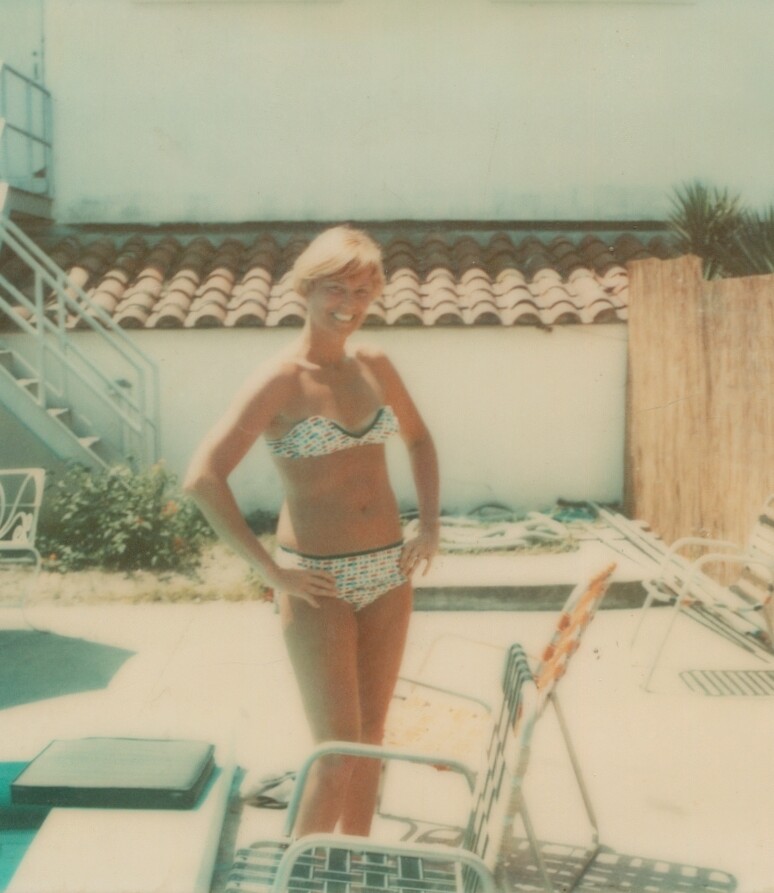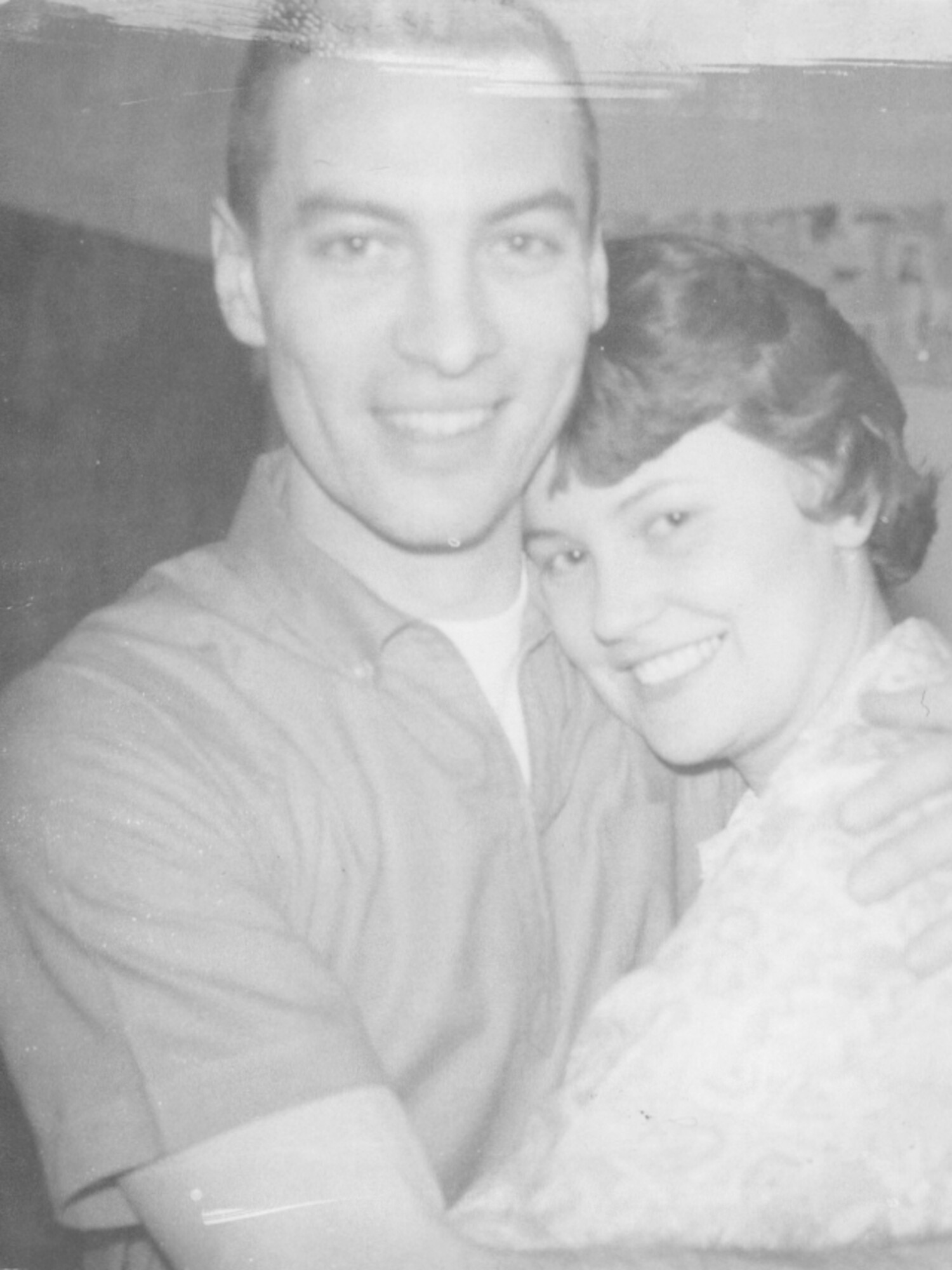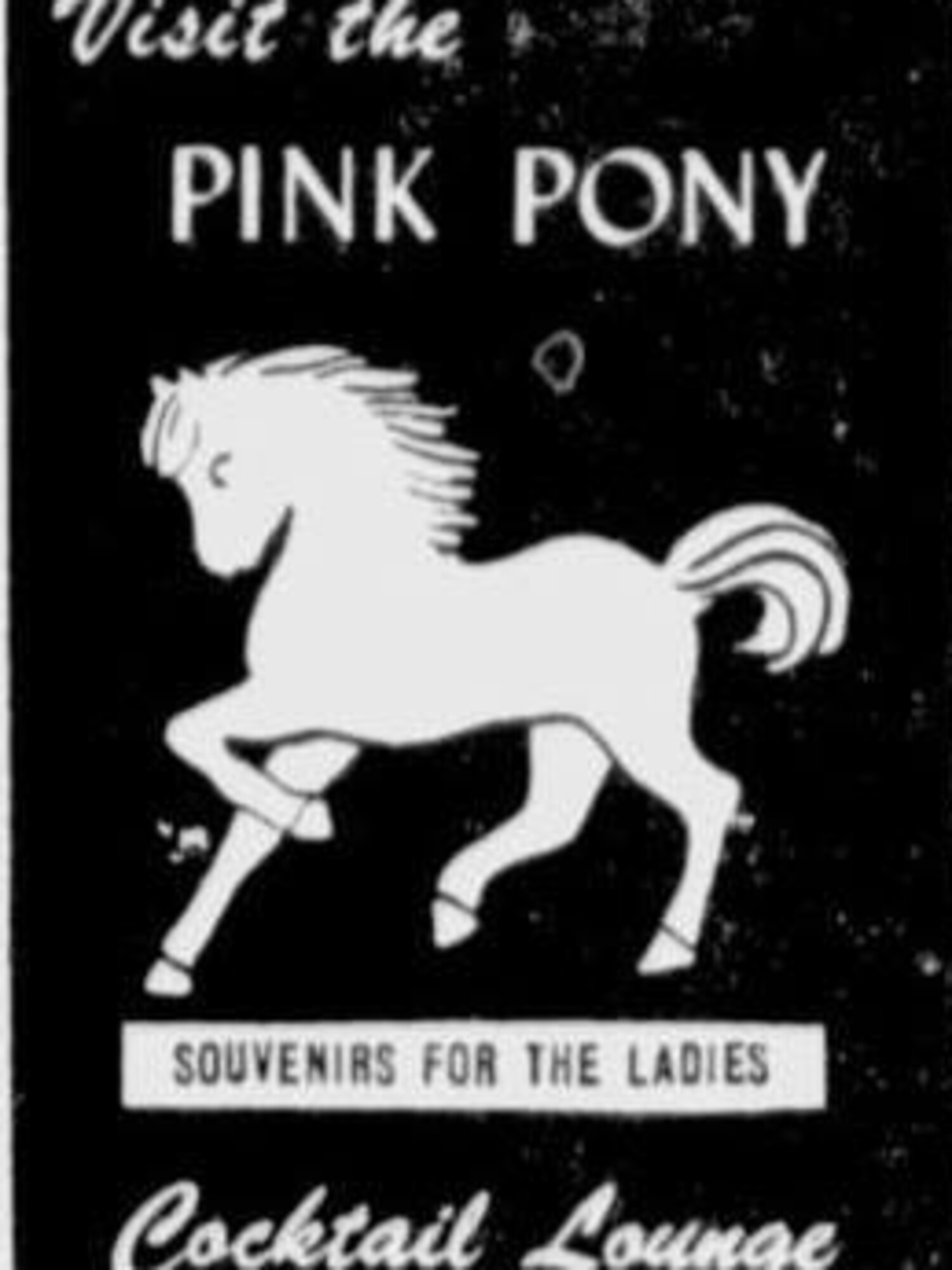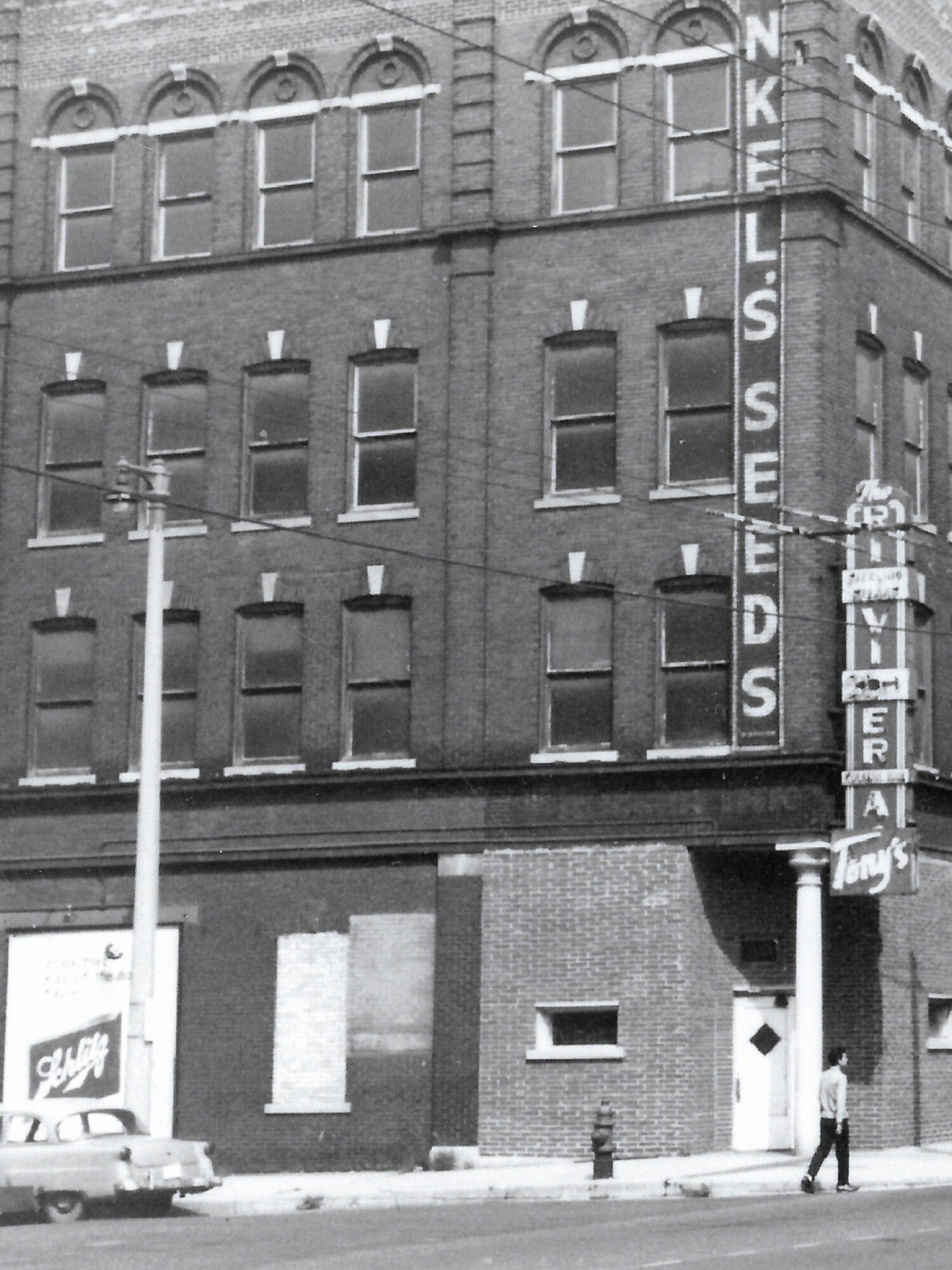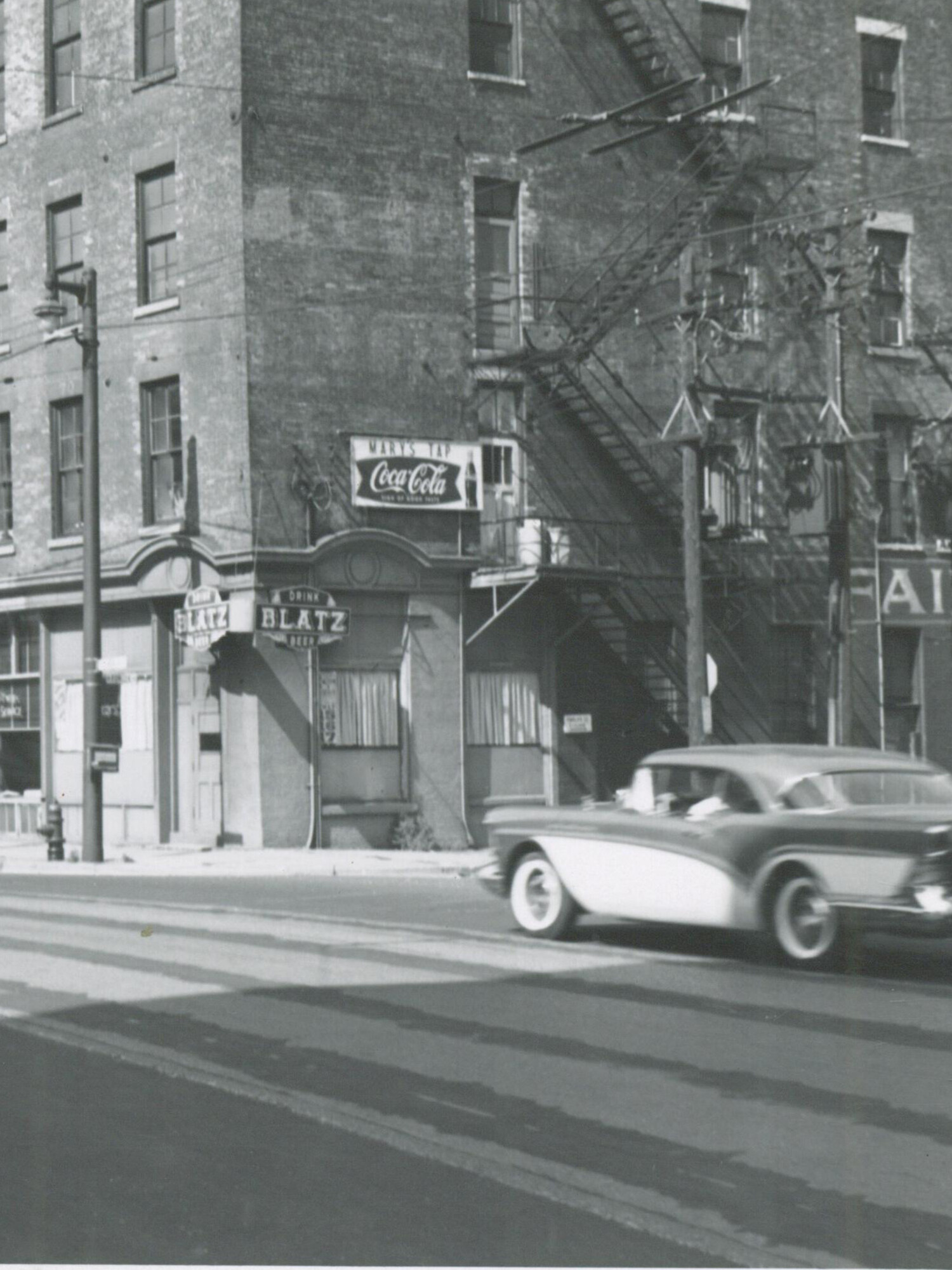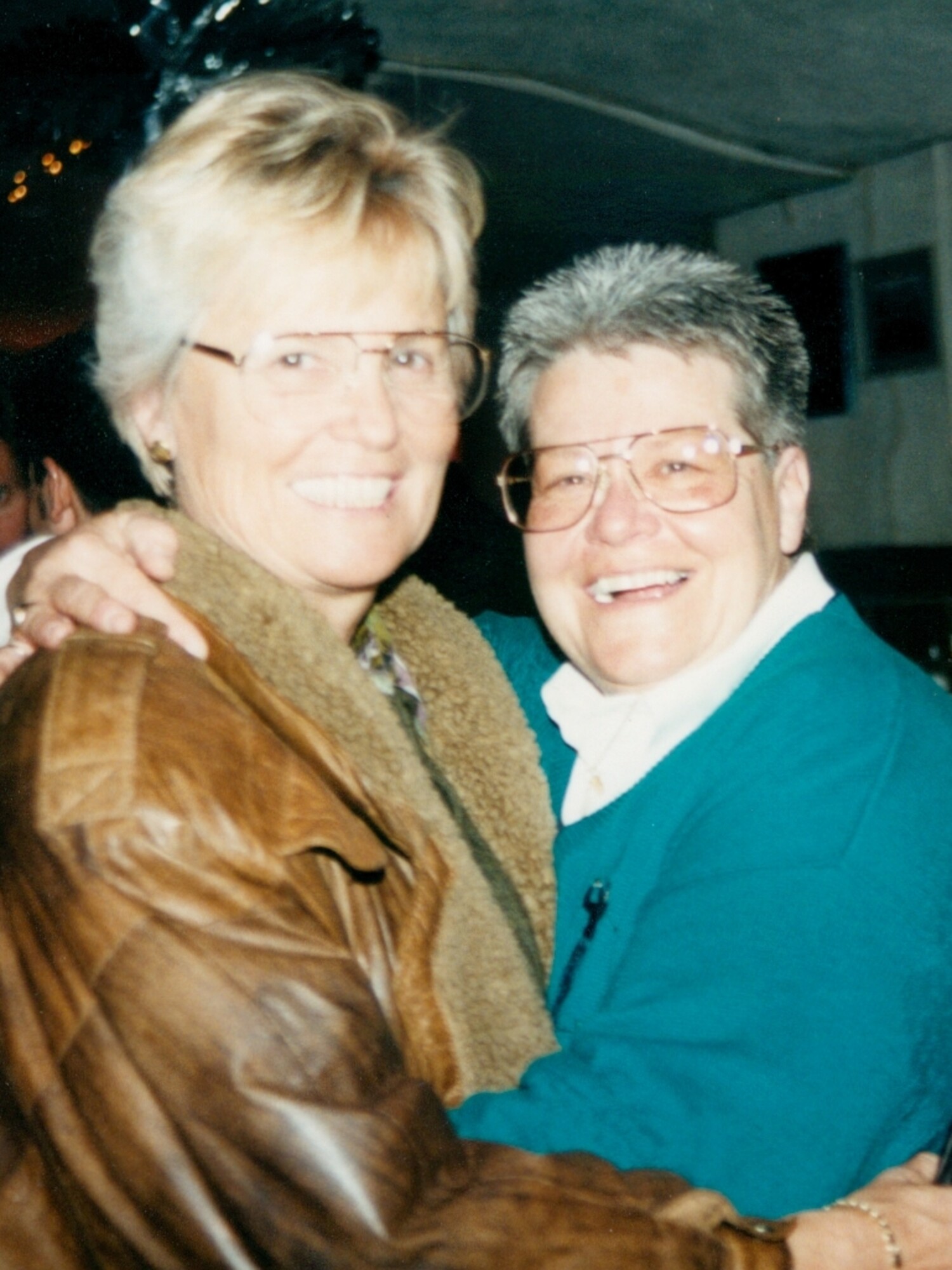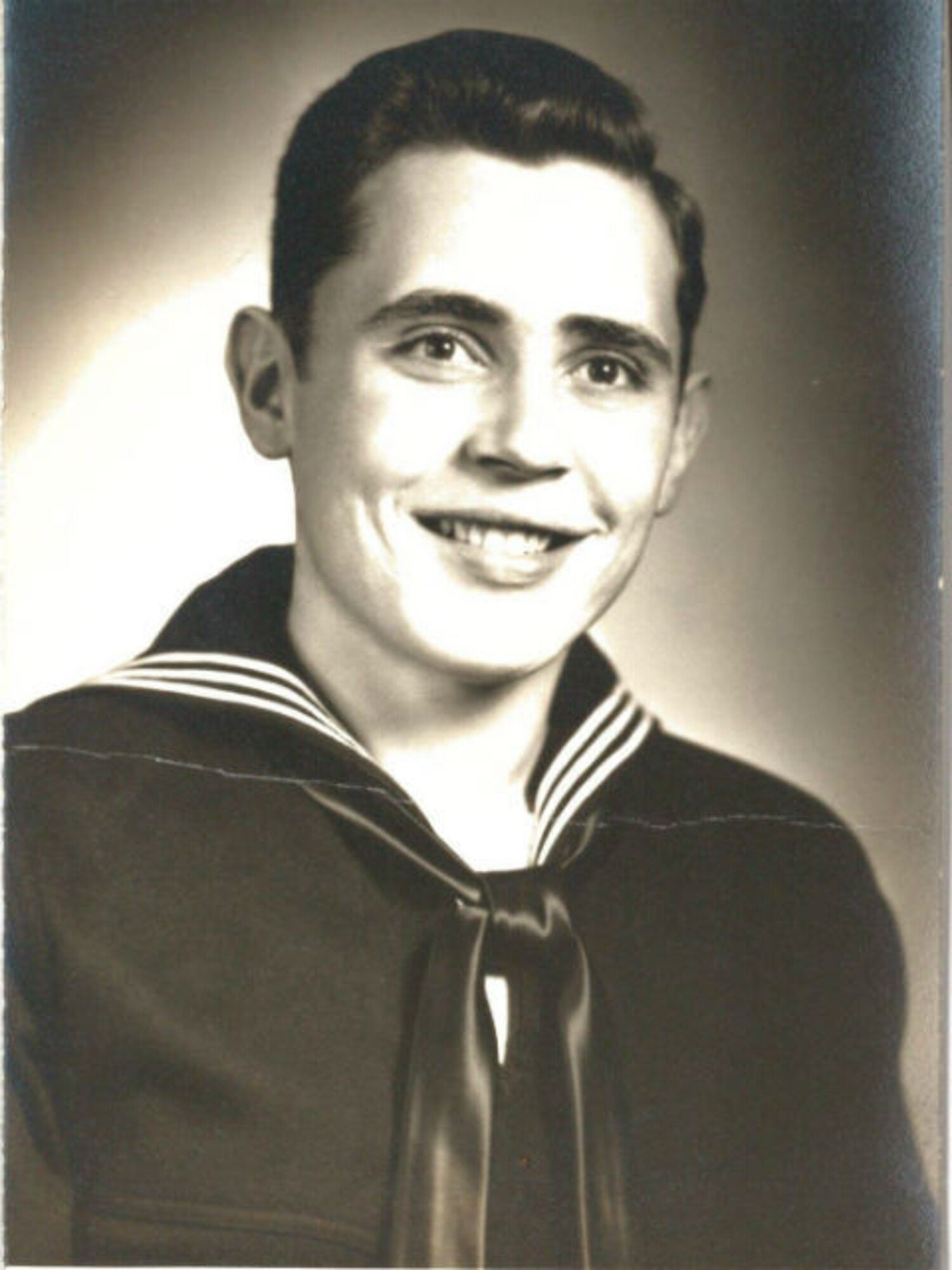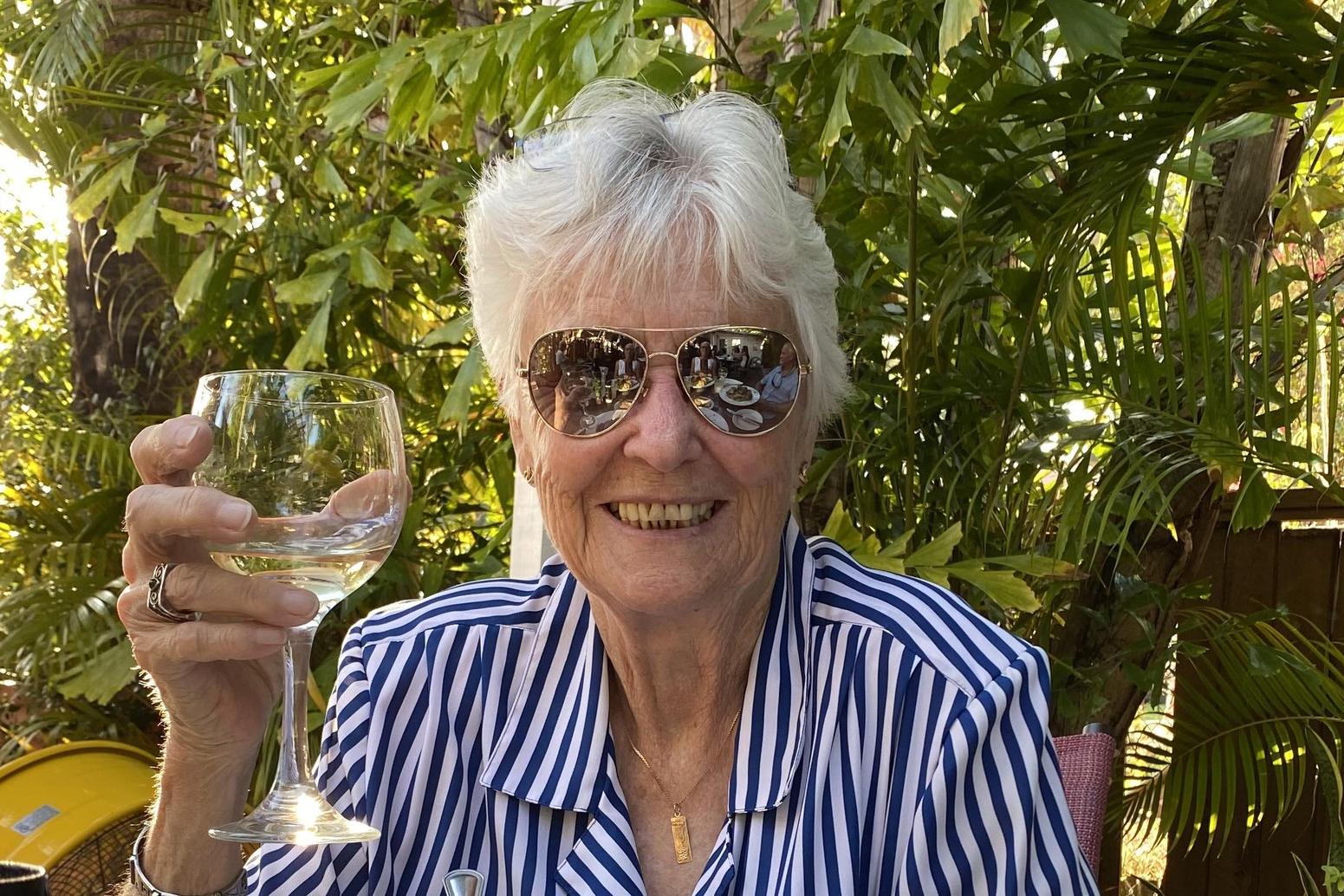
Barbara Hayden: the nights belonged to us

"We had a front row seat to history as it was being made. And we had no idea."
Born in Portsmouth, Virginia, Barbara Hayden moved to Milwaukee age 6 with her mother. She’s been living in Milwaukee for eight decades.
“I really jumped into the gay scene, and I didn’t even know what gay was!” said Barbara. “There was no coming out back then. I’m sure my mother knew, but she never asked and I never told. That’s just how it went.”
Barbara graduated from Bay View High School in 1956. After high school, she decided to work for a year at Allen-Bradley before going to college. That decision likely changed her life forever.
“These older women at work invited me into their circle,” said Barbara. “They were all older than me. I’d sit with their group in the cafeteria, and soon we got to socializing. I didn’t know what was going on here. I’d had some feelings, but never the words. And soon, I was inching out of the closet.”
Soon, she was hearing stories of a mysterious women’s space that was too good to be true.
“At that time, southwestern Milwaukee County was all farmland,” said Barbara, “and somewhere out in the middle of that farmland was an all-women’s bar, owned by a woman, called ‘The Castle.' All of these women went there. That was their place. It wasn’t a huge place, and it wasn’t known to a lot of people. I don't even know if The Castle was the real name of the business! Eventually, someone must have found out about it, because it was raided, some of these co-workers got arrested, and the bar was shut down."
"This was absolutely the first gay women’s bar in Milwaukee, even before the Nite Beat, and nobody even knows about it.”
New Year’s Eve 1959 will forever be one of Barbara’s favorite memories.
“Someone was having this big party,” said Barbara, “so we’re at this big banquet hall somewhere, with a bar up front. And it’s all these well-dressed women at the party."
"But then the door flies open, and in come these butches with wingtip shoes, Fonzie haircuts, suits and ties, with their babes in strapless dresses and high heels on their arms. What the fuck? I was just standing, frozen, with my jaw on the floor. Someone literally told, hey, close your mouth, it’s hanging open. I was just a child, and I’d never seen anything like that, even though it was prevalent at the time.”
“Well, it got worse: we were at a straight bar, you had to go up front to the bar to get drinks, and shit hit the fan real quick. That was the end of that party!”
Barbara remembers a large, but tight-knit community of friends in the 1960s.
“My guy friends were all older than me by 7-8 years, and they were all such handsome, talented hunks of men. One of them dreamed of being a dancer in the chorus line, and he made his dream come true. He was drop dead gorgeous. I was so close with Marshall, this handsome hunk of a man, that my mother thought we were going to get married. And I was just like, oh mother, come on! Really?
"I got to meet so many people through those guys. They were so full of life, and sadly, they’re all gone now.”
“We had a whole routine back then,” said Barbara. “We’d meet the guys at the Riviera (401 N. Plankinton Ave.) for drinks around 6 p.m., head over to the Pink Pony, and then we’d go over to the Big T around 9-10 and dance our asses off. Sometimes, someone would call the Big T and say ‘it’s blowing up on Walnut,’ so we’d head over to the Wildwood, park down the street, scan the door, and head in if it looked good.”
“We’d all end up at the Belmont Hotel Café,” said Barbara. “They had a 24-hour restaurant that was filled with drunk people. You’d be sitting there, someone would throw a French fry, and suddenly a food fight would break out. That place was a hoot! Sometimes we went to the Loop Café on the corner of 5th and Michigan.”
“The Big T was all women, but guys were okay if they were friends. Of course, they didn’t stick around long, and went back to the men’s bars. If they overstayed their welcome, someone might ask ‘hey, who’s your boyfriend’ and not in a nice way!’
The Big T was mere blocks away from the Pink Pony, an upscale cocktail lounge on 20th and North opened by Al Tusa.
“I met Jan Moore and Gerry Perry at the Pink Pony,” said Barbara. “It was such a neat place, where people dressed up to go. The guys would be all lined up. It had a very high end feel back then. I'm still friends with Jan, who is now 90 and living down south."
“We were safe in that community because Jack was paying off the cops,” said Barbara. “But when the riots came, that was it. The Big T closed, and the Pink Pony was burned to the ground. Rumor had it that it was targeted because it was a known gay bar.”
Jack Trostorff later ran an accounting firm. He passed away in 2011 at age 83, surrounded by his wife, children, grandchildren and great-grandchildren.
"He was a really neat guy who really cared about the women," said Barbara. "He made the Big T the best bar of them all."
Another favorite was Castaways, which opened at 424 W. McKinley Blvd in 1961.
“It was a ghost town over there,” said Barbara. “You had Usinger’s Sausage, the original Speed Queen BBQ location, and nothing else. Literally, nothing else. The old meatpacking area was abandoned. So, Castaways kind of ruled the roost. The nights belonged to us. And I remember spending many summer Sunday afternoons over there, drinking beer on the steps, sitting out in the streets, dancing on that tiny dancefloor. "
Barbara knew owner Jimmy Zingale from the Big T, where he was the bar’s liquid distributor. At his own bar, he was notoriously strict.
“There was no fooling around at Castaways. I dropped a glass once while arguing with someone, and he came over and threw me out. He didn’t put up with any bad behavior. You were out and you were told don’t come back.”
“When Castaways moved down to Walker’s Point, the dancefloor made it famous,” said Barbara. “The Nite Beat moved across the street, which was a huge mistake, because the space was dark as a basement and smelled like a toilet full of cigarette ashes. Boy, that place was a toilet!”
“I never understood why women went there,” she said. “These nice places would open, and women wouldn’t go to them, because they were always looking for better deals. Women didn’t have as much money as men, so they settled for what was cheap.”
Making connections
Barbara later moved to the Viking Apartments on Milwaukee’s East Side.
She became close friends with Jack Majewski, who owned the Beach on Lake Beulah; Gary Strothmann, whose parents owned the Boulevard Inn, and Bob Antkowski, whose father founded South Side Sausage in the old country before moving the family business to Milwaukee's Mitchell Street.
Bob was one of the investors who made The Factory (158 N. Broadway) happen in 1973. She spent 12 summers living in his guest house on Lake Beulah.
“He said, you can have it for nothing,” she said, “and I couldn’t believe my ears. As it turns out, his relatives keep asking to use the space, and things got a little wild, and he wasn’t comfortable with them using it anymore. So, from 1977-1989, I lived out there with the boys.”
The rise and fall of local lesbian bars
“There were guy places and there were girl places,” said Barbara. “And some spaces we could share.”
“Juneau Park – well, the boys were always in there and so were the cops! I wonder who’s in those bushes nowadays. The Loop Café was mostly boys and drag queens. The Neptune Club (1100 E. Kane Pl.) was more mixed. I remember that being the place where I first started seeing women really dressing down. The Gloria Steinem effect. But they sure had fabulous Halloween parties. I went as a cow with giant udders, and the boys went wild! I sure loved the Lake Park Pavilion dances, too. Those were wonderful.”
Barbara remembers how much "cliques" mattered back then.
"In women's bars, you had a few groups: the older group, who were affluent women who didn't go to bars regularly, but might host elegant house parties; the yuppie crowd, who were all very well-dressed, well-behaved professional women; the butch crowd, which were rougher, tougher women who really dressed the part and seemed a little dangerous."
"I'd meet someone, find out who they hang with, and get to talking," said Barbara. "I fit in with all of them, and the ball teams were a mix of all of them, but most people just stuck to their groups. It sometimes felt like were in old-time gangs, the way this worked."
Barbara also remembers how risky it could be for women to be seen.
"Some of these women were school teachers, so they wouldn't go out to the bars, because they were always afraid of being seen," said Barbara. "This was a real cause for panic back then. Teachers were more inclined to be found out. Someone said they were gay in the 60s, the 70s? Holy crap. They'd be out -- suspended without pay, if not fired immediately -- and they'd have to prove it wrong to keep their jobs. A simple accusation could change someone's life forever. Even false accusations were treated as truth."
"There was a lot of suffering," said Barbara. "And it was truly awful. Many lives were shattered. Some people abandoned their jobs, careers, homes, families as soon as they were outed. Even after state laws changed to protect us against workplace discrimination, employers still found ways to make people's lives hell."
"So, when you went out anywhere, you really had to watch yourself."
Barbara remembers the Lost & Found, a membership disco with an amazing dancefloor, being a big West Side hot spot in the late ‘70s and early ‘80s. Another favorite was the Beer Garden (3743 W. Vliet St.,) operated by Sally Szewczyk and Roger Emerson, where she sat at one of the “society tables” along with other popular customers. After the Beer Garden closed, women started gathering at Kelly’s Bleachers.
By the mid-70s, the Sugar Shack was the women’s bar of choice. Although Barbara knew about it, she hadn’t been there. So, one night, she decided to take her date out for a drink.
“My date was from Chicago,” said Barbara, “and she could really turn heads. We walked into the Sugar Shack and sat down. The place was a little rough, with a lot of butch women with cigarettes rolled up in their sleeves. The whole room went wide-eyed and couldn’t stop staring at my woman. So, my date said ‘alright girls, eyes up!’ She worked for a travel business and the men at her office always stared at her chest. At now, it was happening at the women’s bar. Sharon bought us a drink, and we laughed about it.
The next time Barbara visited Sugar Shack, Sharon was already talking about selling the bar and moving out. When she did, the space was briefly taken over by a straight guy with this big, butch sister-in-law who thought she could make a killing as a bar owner. The only problem was, Sharon moved – and took the crowd with her to Fannie’s. Nobody went to this woman’s bar, and it soon closed.
And how’s this for Smallwaukee? The women who took over the Sugar Shack was one of Barbara's long-time friends.
“Dorothy ‘D.K.’ Katorski was one of my Allen-Bradley co-workers from way back when,” said Barbara. “I came home for Easter break in 1963, and D.K. and I went down to this women’s bar on National Avenue. A lot of women were hanging out there. It was the hot spot of the moment, and it was opened by artist Lois Gaulke's 'in-laws.' Her girlfriend's parents ran the bar, but it only lasted a few months, and nobody seems to remember it ever existed. I only went there once. I don't even remember its name."
"Lois "Kyle" Gaulke opened Sands Gift Shop & Gallery (3968 S. Howell Ave.,) in 1959. It was a really high-end jewelry shop, known as the "House of Symbol Rings," where many gay men bought their jewelry Today, Lois is gone, and her longtime partner Faye lives in Las Vegas."
"So, D.K. and I made a bet that night. She was hot to trot for some woman at the bar. I said, $5 I can get her before you – and I got her for seven years, that same night.”
“Anyway, D.K. took over the Sugar Shack, changed the name, and ran it as a women’s bar for several years. Fannie’s was more popular, but D.K’s did okay. It was nice to have options.”
In addition to the Leaded Shade and Kathy’s Nut Hut, she remembers Nightingales, a short-lived women’s bar on 19th and National, because she was teaching at South Division at the time. “I didn’t want my students to see me leaving the bar,” said Barbara. “I joked that I should wear a bag over my head.” She also remembers Jet’s Place but has no idea whatever happened to Jet herself. “Did she move to Las Vegas? Nobody knows!”
Barbara also remembers a long-lost, short-lived women’s bar near the 16th Street Viaduct.
“I found this place by accident, and it was a real treat,” said Barbara, “because they’d have these Friday cocktail hours for female executives, and the women would show up and really let loose. It was a very different, very professional crowd, and filled with people you didn’t see anywhere else. But it was too good to last. People were getting mugged, cars were being vandalized, the bar was getting robbed. And that was the end of this hideaway!”
She’s sad to see the Old Timers Party – an annual women’s reunion – come to an end after forty years.
“I went to the first one at the Beer Garden in 1980,” said Barbara. “It was this small group of super tight-knit women that just grew, and grew, and grew, and grew. But now it’s gone and not coming back, and that’s a real shame.”
The party’s not over yet
Barbara laughs at the full circle her life has made.
“It’s funny, because I ran with a lot of guys when I was young, and now that I’m older, I’m back to hanging out with the guys,” said Barbara.
"You lose people if you're not out there all the time, maintaining connections," said Barbara. "I would love to see people get together more. At my age, you've lost a lot of people: either they've moved away or they've died."
“I was reading Sharon Dixon’s interview, and I agree with her wholeheartedly: women today don’t know the camaraderie we used to have. They don’t know the feeling of having a shared space among women. Having a place they can go and know everyone who knows them. In the old days, everyone came together at the bars, no matter how old they were. Now, there’s not really anything bringing people together.”
“I feel sorry for them, never to know that feeling of togetherness we had.”
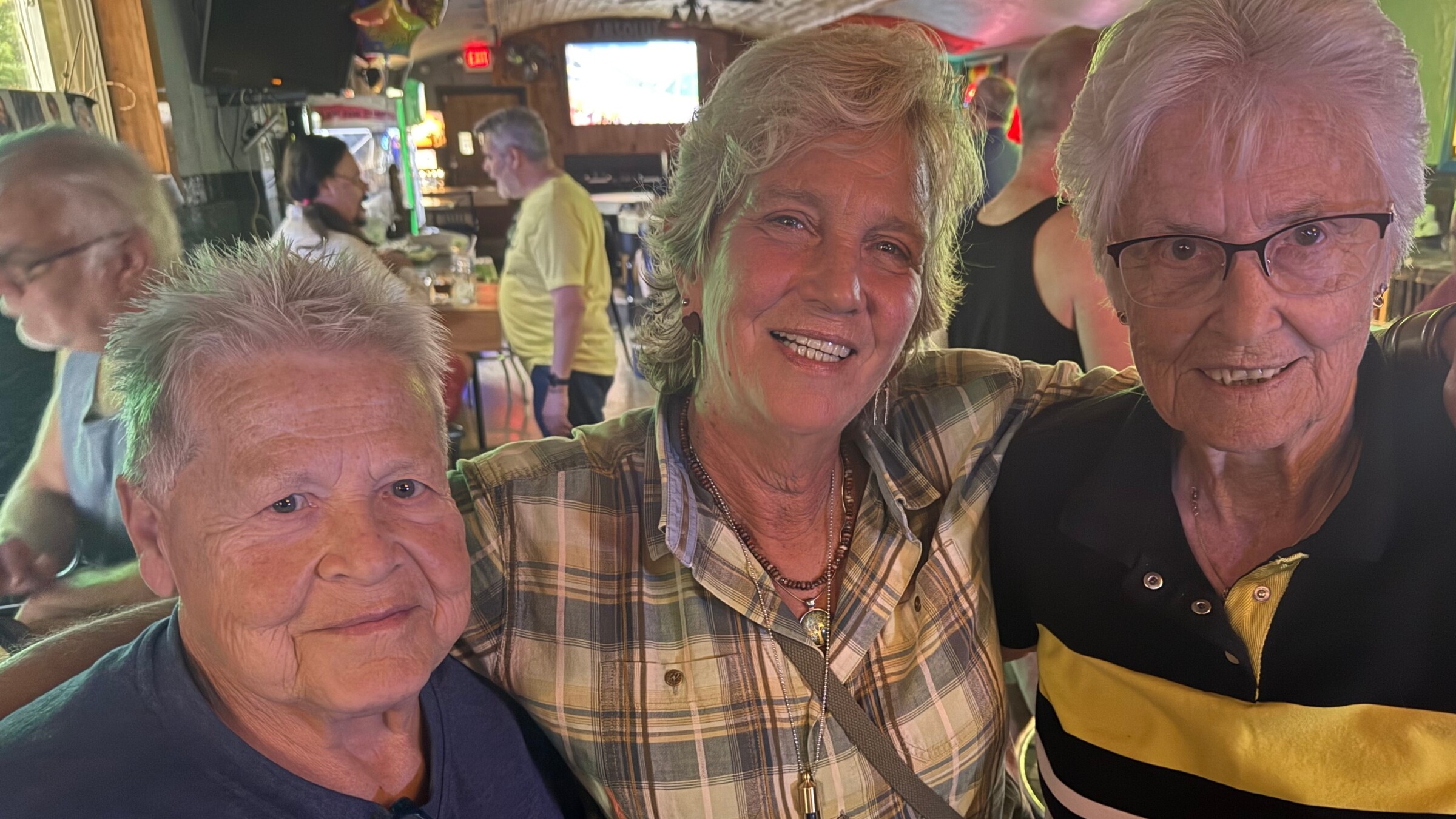 Barbara with Lois Ratzow and Diane Gregory (2024)
Barbara with Lois Ratzow and Diane Gregory (2024)
recent blog posts
June 30, 2025 | Ricardo D. Wynn
May 31, 2025 | Andy Hartman
May 27, 2025 | Andy Hartman
The concept for this web site was envisioned by Don Schwamb in 2003, and over the next 15 years, he was the sole researcher, programmer and primary contributor, bearing all costs for hosting the web site personally.
